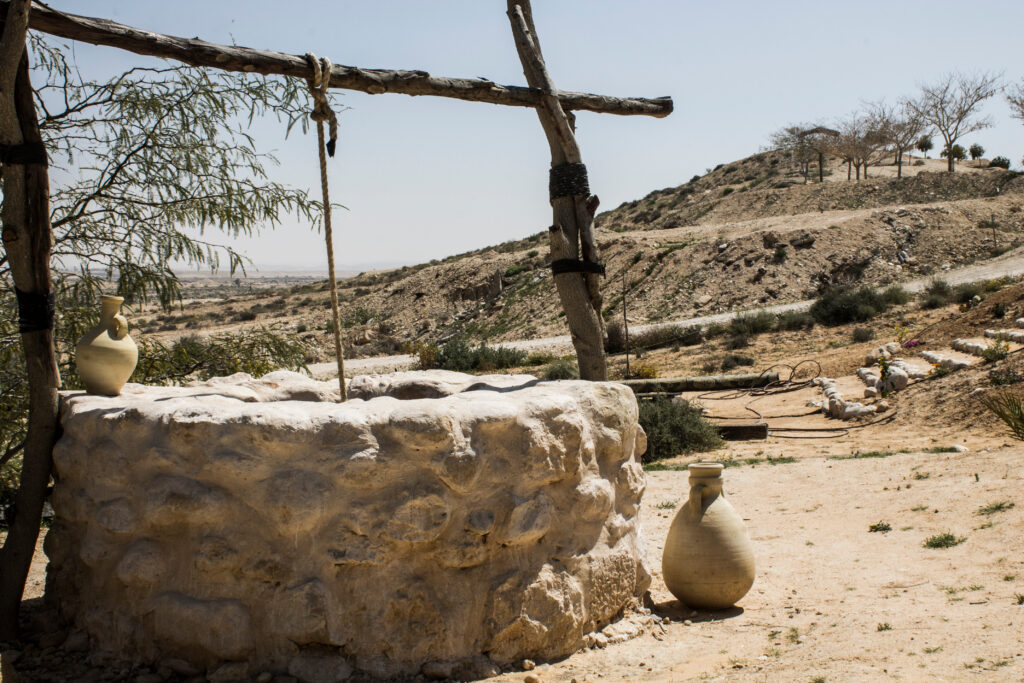A Friend of Jesus
If you grew up in a christian home, you have probably sang songs growing up about Jesus being your friend. Or even better, you sang how YOU are a friend of God! But how do you know if you’ve been a good one?
Jesus had a way to bring out the best in people. But not every person knew how to value having a friend in Jesus. Or maybe they struggled to recognize how His treatment of us formed who we were becoming.
Let’s look at several Biblical examples of people who met Jesus and could become His friends, but the outcomes varied. Is Jesus your acquaintance or friend, Lord or teacher?
Who was Jesus to the Disciples?
When you think about Jesus’ life on earth and who His friends were, you will likely think of His disciples. They were His closest companions and He shared a lot with them. But more than that, He helped them grow – in their understanding and in their character.
They didn’t know He was the Son of God when He first called them to follow Him. Gradually, they were learning about the Father and about who this exceptional man among them was! And still, not all of their relationships were the same.
Many have noticed that out of the twelve, Jesus spent a lot of time in particular with Peter, James and John. And despite his fiery personality, Peter seemed to have an especially close connection with the Messiah.
But among the twelve, there was one person that is not remembered well today – by his own doing. Have you ever wondered if Judas Iscariot would also call himself a friend of Jesus?
Among Jesus’ Friends, but Not One of Them?
Have you ever found yourself upset with Judas Iscariot after reading the accounts in the Gospels? I mean, the guy literally betrayed Jesus into the hands of the Romans – with a kiss!
I have wondered how Judas could have possibly betrayed the Savior. He was a disciple! He was one of 12 men who got to spend more time with Him than anyone else. They got to pray with Him, they got to eat with Him, they had deep conversations… They even got to be around Him when He slept.
Judas was privileged to be around Jesus during His years of ministry on earth. How could he be deceived into betraying God’s only Son for 30 pieces of silver?
A big clue lies in Matthew’s record of the Last Supper. In Matthew 26 the disciples are all sitting around the table with Jesus as they enjoy the Passover meal. This is the night before Yeshua’s death.
The Messiah shares many revelations and insights with them throughout the meal. And He takes a moment to even talk about His betrayal and how it would come from one of them.
Lord or Rabbi
One after another the disciples around the table ask, “Is it I, Lord?” “Surely, it isn’t me, Lord.” “Am I the one, Lord?”
Each one of them deny that they could commit so great a sin as betraying their Lord. Lastly, in Matthew 26:25, Judas asks the same question each of the other disciples had asked — only it wasn’t the same. He asks, “Is it I, Rabbi?”
If you didn’t immediately catch the difference, take note of the title with which Judas chooses to address the Messiah. While the rest of the disciples call Jesus, their closest friend, “Lord,” Judas calls Him “Rabbi.”
In the first century Israel, to be called a rabbi was a great thing. It was an incredibly honorary title given to those who were great teachers and scholars of the Torah. But, there were many rabbis walking around Israel during the time of Jesus.
Calling Yeshua “rabbi” wasn’t wrong, because He is the greatest Rabbi. But it gives us insight into Judas’ heart and the way he viewed the Messiah. The title of “Lord” is one that denotes full authority and ownership. Comparatively, you can have many teachers in your life, but you can only have one “Lord.”
Judas’ problem was not that he didn’t see Jesus as a great teacher, performer of miracles, or even the Son of God. Judas’ problem was that he didn’t see Yeshua as his personal Lord.
From an Acquaintance to… Lord
We can rightly address Yeshua in many ways, like our Healer, our Savior, our Friend, and even our Rabbi. But may we never forget to address Him ultimately as our Lord.
Jesus said of Himself that before Moses was, He was. Throughout history, He was there to be near us, to advise us and lead us. He is our teacher, but He is also so much more than that. And Judas did not recognize what Jesus’ other friends did.
Through personal relationship, Jesus has become our friend, but He continues to be our Lord. The only Son of God. Because of that, He was also a friend of Abraham and of Moses. He knew what the Father had in store for mankind. And He wanted to give us access to the Father.
The People of Promise
According to Romans 9, the Jews are “the people of the promise.” The covenants, the law, the patriarchs, the seed that produced Messiah Jesus — all of these belong to Israel. But, what about the nations? What about those who are not born Israelites?
Let’s go back to some history that may clear some things out for us. In Genesis 24, Abraham’s chief servant takes perhaps the most important oath of his life — the oath to find a wife for his master’s son, Isaac.
On his journey towards Nahor, where the family of Abraham’s father had moved, the servant prays a solemn prayer to the LORD. It was something like this,“Oh LORD of my master, Abraham, grant me success on my journey. May the young woman who gives me a drink and who offers to water my camels be the one whom you have chosen for my master’s son, Isaac, as a bride.”
Lo and behold, a beautiful, young woman named Rebekah comes to the spring as Abraham’s servant arrived. She gives the servant a drink and offers water also for the 10 camels with him. This is all the answer that the servant needed.Rebekah becomes Isaac’s bride. Which means, she married into every promise that God had spoken over Abraham and his descendants.
The Woman at the Well
Before I share more about Rebekah’s story, let’s shift our focus to another interesting encounter, this time involving Jesus in the flesh. In John 4, we read about Jesus meeting a woman at a well near Sychar. The woman, a Samaritan, approached the well around the sixth hour of the day and Jesus asked her for a drink of water. She responded saying,“How is it that you, a Jew, ask me for a drink, a woman of Samaria? For Jews have no dealings with Samaritans.”
Jesus knew what she meant. Samaritans were viewed by Jews as “half-breeds”. The Samaritans were the descendants of northern tribes of Israel who were conquered and taken into captivity by the Assyrians. Assyrians tended to uproot their slaves to intermix them with other peoples, to take away their heritage and identity.
Samaritans were descendants of such groups, thus to Israel, they were a picture of “the nations”. But Jesus ignored the woman’s question but told her of the water He offers. It is water that becomes a wellspring of eternal life (John 4:14).
When Jesus Becomes a Friend
Jesus told the Samaritan woman to go get her husband, knowing full well her story. She had married multiple times but had no current husband. Finally, she started realizing that she was dealing with no average man, or shall we say, no average Jew.
She hurried to her town and told other people of the man at the well. Finally, many came to listen to Him. Jesus remained with them for two days, letting them “drink” (so to speak) of Himself. All because an accidental acquaintance recognized Him to be the Lord.
So, what do the stories of Rebekah and the Samaritan woman have in common? And what does it have to do with the nations?
I believe that both are stories of a marriage proposal. Rebekah meets Abraham’s servant at a well and is asked for a drink of water. And though Rebekah didn’t know it, her “giving of water” was the sign of being the future bride of Isaac.
Likewise, Jesus asked the Samaritan woman for a drink. But in result, it is Him who offered her a drink from a spring that would well up to eternal life (with Him). He then spent two days giving waters to others in her town as well, just as Rebekah spent extra time giving water to the camels.
The Most Important Relationship
Jesus offered the Samaritan woman living water that opens up eternity to her and her people. Rebekah offers to give the patriarch’s servant a drink and becomes the bride of Isaac, son of Abraham.
As stated before, the Samaritan woman represented the nations. And even though she didn’t offer Jesus water, He took upon Himself both roles to offer the same sign from Genesis 24 to the nations. Jesus made it clear that He wants them to become part of His bride.
The nations do not replace Israel, but they do have the opportunity to be grafted in as part of the bride. This is the most important relationship that each one of us can have with Jesus. Both as Jews and Gentiles!
For many, He starts as an ‘acquaintance’ – you’ve heard of Him, maybe you know some of His story. But once you decide to open your heart, He becomes a true friend. And by His grace alone, we are invited to recognize Him as Lord and Savior.
Join the Tribe
Are you looking for how to get more connected to Israel? You’re invited to join in the story of God’s plan for his people!
The Tribe is a passionate and faithful group of monthly donors on a mission to transform lives in Israel through the love of Jesus.
Articles Related to “Friend… Who is Jesus to You?”
Estimated reading time: 4 minutes



